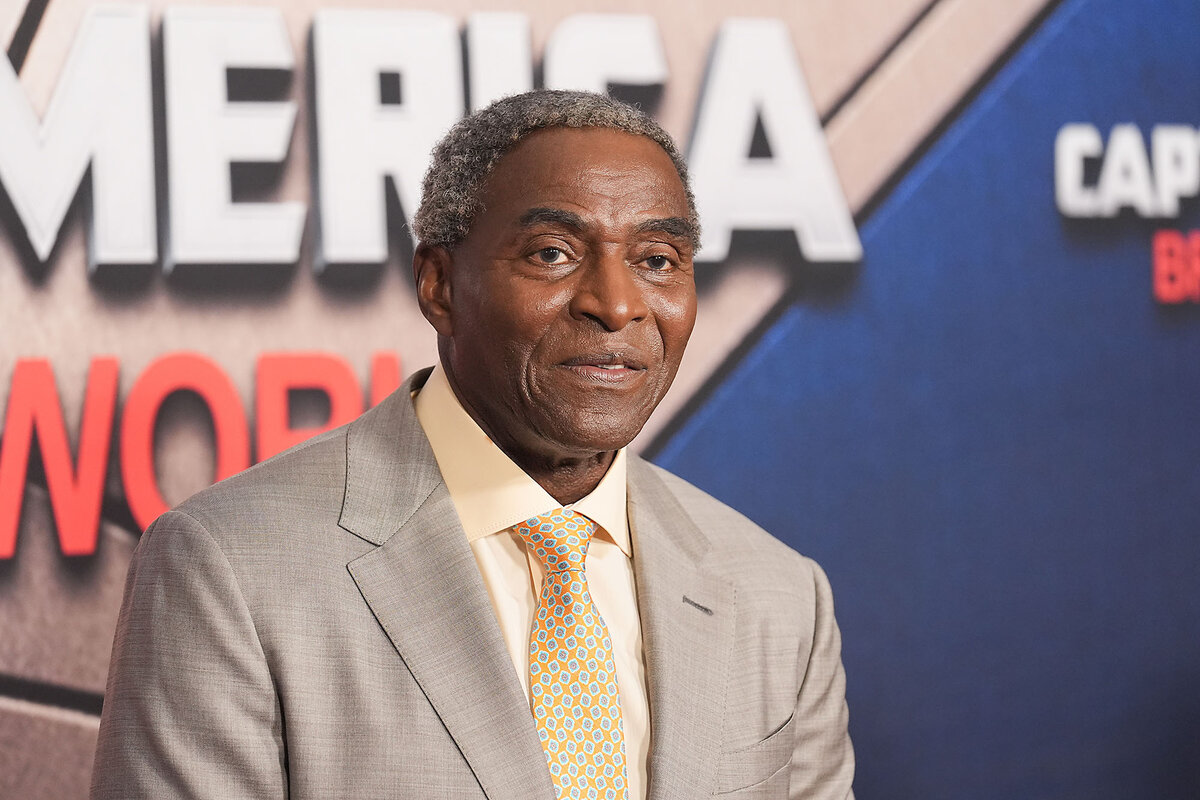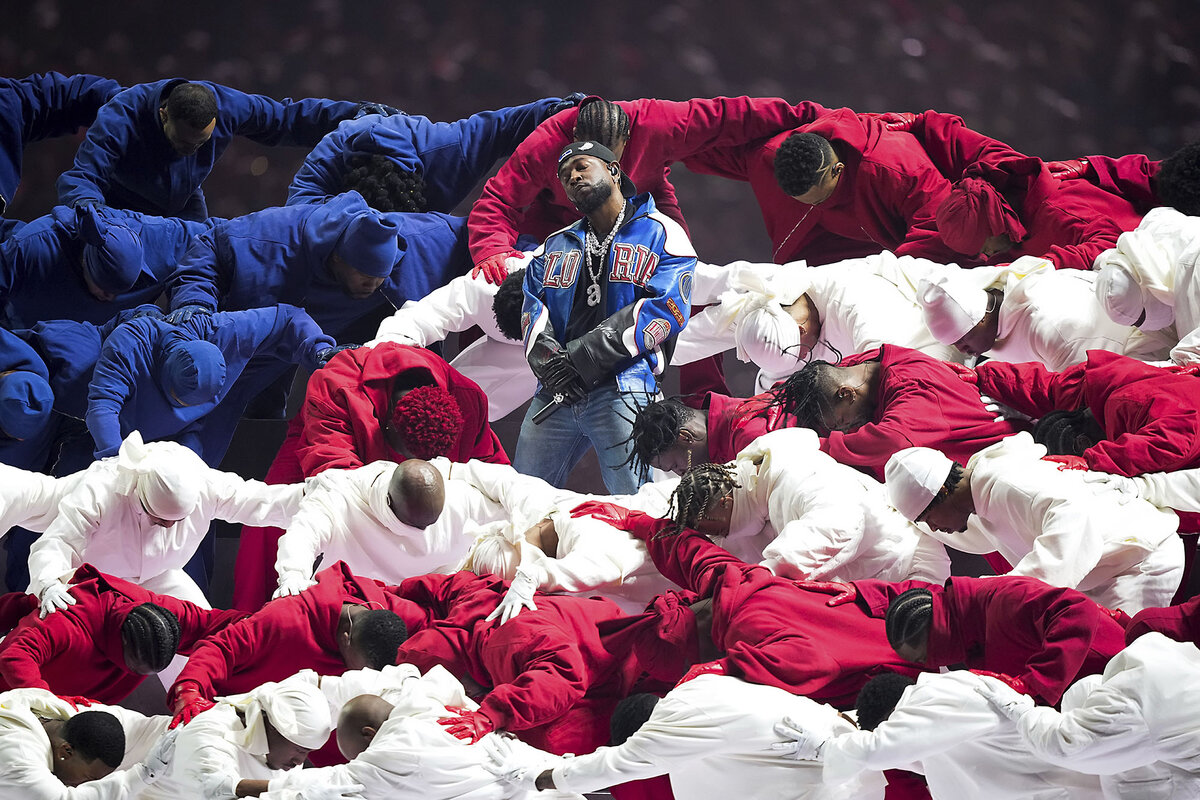The new ‘Captain America’ explores a different kind of patriotism
Loading...
Thanks to my dad’s influence, my childhood was filled with an assortment of Black superheroes, both real and imaginary. There were the obvious ones, like Malcolm X and Martin Luther King Jr. The fictional ones were especially eclectic, with names like Sun-Man, Meteor Man, and M.A.N.T.I.S.
“M.A.N.T.I.S.” was a one-season television show in the 1990s that focused on a scientist and superhero portrayed by Carl Lumbly. This weekend, some 30 years later, audiences will see Mr. Lumbly as a pivotal character in Marvel’s “Captain America: Brave New World.”
The film has all the bangs and crashes that Marvel uses to promote its big-ticket brands. But it also introduces a lesser-known Black Captain America to the screen, and it is Mr. Lumbly’s character, Isaiah Bradley, who gives the movie its depth and moral force. As the embodiment of the harsh realities of Black heroism, he shows the complicated legacy of being draped in the American flag, for both Black soldiers and civilians.
Why We Wrote This
A story focused on“Brave New World” introduces a Black Captain America to the big screen. In doing so, it doesn’t shy away from exploring the complex legacy Black Americans have with their country’s flag.
In the film, Isaiah’s backstory is boiled down to essentials. He was thrown in jail for 30 years after his military service in World War II and then experimented on by the government. The result has left him with superhero powers but the bitterness of having been experimented on and then covered up by the American government.
Interestingly, the Marvel comic book universe goes deeper. A series called “Captain America: Truth” portrays Isaiah’s experience by drawing on the abominable real-life Tuskegee experiment, in which Black men in Alabama with latent syphilis were untreated despite the availability of a cure. In this backstory, Black men served as guinea pigs until the super serum that created the white Captain America, Steve Rogers, could be perfected. Only Isaiah survived the experiments.
The struggle to address this legacy of racism and injustice – and yet still find some basis for equality and honor – drives the film’s best moments.
In one scene, the new Captain America, Sam Wilson (played by Anthony Mackie) discusses his role as the modern and Black Captain America with Isaiah. It’s beautiful in its irony – a playroom filled with iconic Black athletes such as Kareem Abdul-Jabbar, Jack Johnson, and Jackie Robinson, each radical in their own right.
“You got no business working for the government, Sam,” Isaiah tells him.
“It gives people hope,” Sam responds.
It’s a particularly interesting conversation to have during Black History Month. At the Super Bowl, Kendrick Lamar’s booming red, white, and blue performance during halftime inspired debate about what it means to “capture the flag.”
One commentary posted on Instagram juxtaposed Mr. Lamar’s concert with the words of iconic activist Fannie Lou Hamer in the 1968 documentary “The Heritage of Slavery.”
“So we know that this flag is drenched with our blood,” she says. “So what the young people are saying now, ‘Give us a chance to be young men, respected as a man, as we know this country was built on the Black backs of Black people across this country. And if we don’t have it, you ain’t gonna have it either, cause we gonna tear it up.’”
I share Ms. Hamer’s disappointment and disdain. The more you learn about the United States’ treatment of Black people, from forced immigration to Jim Crow to the treatment of Black service members who returned after World War II, the more difficult it becomes to embrace the flag, much less pledge allegiance to it.
That might sound like sacrilege to those who wield patriotism like a sledgehammer. But the strength of “Brave New World” is a willingness to address Ms. Hamer’s sentiments in a film series founded on patriotic themes. What do America’s great triumphs – such as democracy and civil rights – mean to those who have so often been excluded and exploited?
The movie itself represents something of a return to what made Marvel movies popular – the militaristic-style action film. And while the early reviews have not been kind, there are enjoyable twist and turns. But what is most rewarding is to see characters of color with depth taking on complicated themes that continue to challenge us in the real world.
If you look at the Captain America series in totality, it becomes apparent that Isaiah, Steve, and Sam are all men who have been displaced and disregarded. Isaiah was locked up and forgotten. Steve was bullied and dismissed before becoming Captain America, and then frozen in Arctic ice for decades. Sam finds himself trying to escape Steve’s shadow and to uphold the complicated legacy of the hero’s mantle.
The film doesn’t shy away from exploring the cost of that burden.
“If I’m not on point, I feel like I’m letting down everybody else who’s fighting for a seat at the table,” Sam says at one point. “That’s pressure. It makes you wonder if you’ll ever be enough.”








